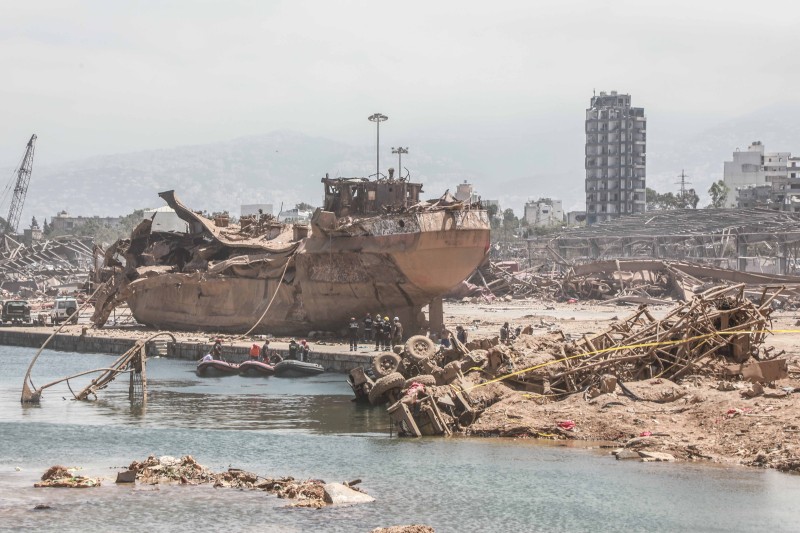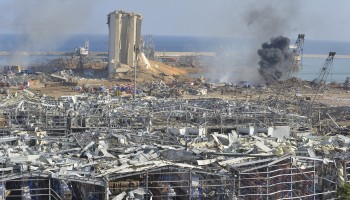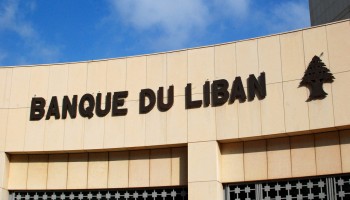Reported by
Nearly five years after the catastrophic explosion that tore through Beirut, killing over 200 people and scarring the Lebanese capital, a long-stalled investigation into its causes may finally be gaining traction.
The shift follows the formation of a new government earlier this year, which has removed key obstacles to the probe. Justice Minister Adel Nassar and Prime Minister Nawaf Salam, who took office in early 2025, have both backed a renewed push for accountability, reigniting hope for justice in a country long plagued by impunity.
On August 4, 2020, 2,750 tons of ammonium nitrate — a volatile chemical stored for years in unsafe conditions at the Port of Beirut — exploded in one of the most powerful non-nuclear blasts in history. The shockwave shattered windows miles away, killing at least 218 people, injuring over 7,000, and leveling large swaths of the city.
The chemicals had arrived aboard the Moldovan-flagged ship Rhosus in 2013, destined for Mozambique. But after being impounded in Beirut, the cargo was offloaded and stored in a port warehouse, where repeated warnings about its danger were ignored for seven years.
The tragedy prompted an outcry for accountability. Within weeks, an investigation by the Organized Crime and Corruption Reporting Project (OCCRP) and its partners revealed that the ship was owned by Cypriot businessman Charalambos Manoli, who used offshore entities in Panama and the Marshall Islands to obscure his connection. The ammonium nitrate, while officially ordered by a Mozambican firm, was linked to a Portuguese company tied to arms trafficking and the 2004 Madrid train bombings — raising further questions about its true destination and financing.
Apart from the damning revelations, the main question remained unanswered: why did such dangerous material sit in the port in unsafe conditions for so long?
Investigative Judge Tarek Bitar, appointed in 2021 to lead the case, faced relentless obstruction. Political pressure and legal challenges froze his work for nearly three years, and attempts to summon top officials were repeatedly thwarted.
That began to change earlier this year. A ban on coordination between security agencies and the judiciary was lifted after Judge Jamal Hajjar was appointed as chief prosecutor, allowing Bitar to resume his work. "The atmosphere has changed," Justice Minister Nassar told OCCRP’s partner Daraj, calling the decision a critical step forward.
Nassar said his top priorities include removing barriers to the port investigation, filling judicial vacancies, and passing a long-delayed law to ensure judicial independence.
Still, challenges persist. About 40 lawsuits to remove Bitar from the case have been filed, mostly by officials who are trying to avoid responsibility; about 30 remain pending. Among them is a claim by former Public Prosecutor Ghassan Oueidat, accusing Bitar of overstepping his authority — a move that, if successful, could suspend the entire process. Oueidat, who was twice summoned for questioning in July but failed to appear, continues to challenge Bitar’s legitimacy.
Meanwhile, delays in receiving responses to judicial assistance requests from several European and Arab countries have hampered efforts to gather evidence from abroad.
Now France is expected to take a more active role, after Lebanon formally requested cooperation from French investigators. “I took the initiative to engage with France,” Nassar said, citing parallel investigations already underway in Paris.
Yet many officials implicated in the blast continue to evade accountability. Arrest warrants for two former ministers remain unexecuted. While former Interior Minister Nohad Machnouk was recently questioned, others have ignored summonses, using legal maneuvers and political clout to stall proceedings.
Even if Judge Bitar completes his investigation, the case must still pass through Lebanon’s Court of Cassation before it can be referred for trial — a process that could take months or years.
For Nassar, the timing of the final decision is less important than its completeness. “What matters,” he said, “is that the decision be thorough and address all aspects of the case.”
In the absence of justice, he warned, the Lebanese state risks losing its legitimacy. “A state that fails to inform its citizens of the truth, hold those responsible accountable, or at the very least identify the perpetrators, has abandoned its role,” Nassar said. “Only the truth can deliver justice to the victims.”






